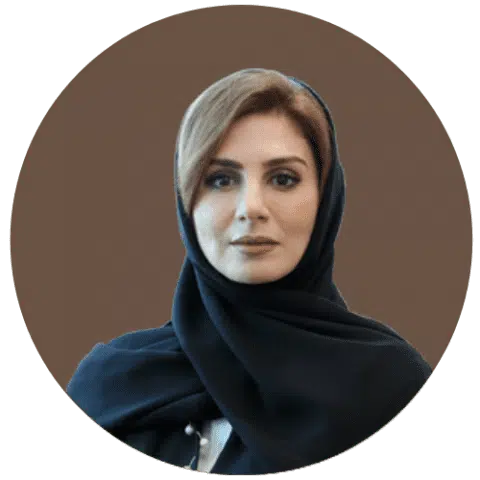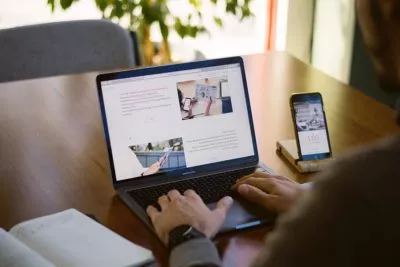One of the middle east’s most developed nations that upholds human rights, especially those of children, is the United Arab Emirates. In light of this and in accordance with the teachings of Islamic Sharia, the UAE ratified the United Nations Convention on the Protection of the Rights of the Child, and in order to ensure that children’s rights are properly upheld and protected, children’s rights have been incorporated into a number of existing laws.
The UAE issued Federal Legislation No. 3 of 2016, a new child protection law in UAE. Nearly 75 articles of the legislation outline general and particular legal provisions to protect the rights of all children. our law firm in Dubai will explain the child protection law in UAE and all children’s rights.
what is Wadeema child protection law?

His Majesty “May God protect him,” Sheikh Mohammed bin Rashid Al Maktoum, Vice President, Prime Minister, and Ruler of Dubai, issued Cabinet Resolution No. 52 of 2018 for the executive regulations of Federal Law No. 3/ For the year 2016, with regard to the law on children’s rights, known as “Wadeema.”
Wadeema child protection law is one of the most well-known and important laws, containing several basic provisions that guarantee the rights of the Emirati child in all aspects, by implementing a set of strategies, legislation, and appropriate means to achieve the UAE’s goal of protecting every child on its soil. This law includes:
- A child’s right to life, care, alimony, and health services
- Involve the child in a variety of programs and activities that will help him develop his personality and provide him with the tools he requires to handle his anxieties, issues, and challenges.
- Protect children from exploitation, abuse, neglect, vagrancy, beggary, and even threatening their physical, psychological, emotional, and moral integrity by prohibiting all types of violence in educational institutions.
- Children under the age of 15 are not permitted to work, and they must be medically fit for the task at hand.
- Not to take children to adult nightclubs or any other site that might endanger their lives or harm their health, such as locations where people smoke, where hazardous gases are emitted, where weapons are manufactured, and where diseases and epidemics are propagated, among other things.
- Not to distribute, display, or create visual, audio, or written works, including electronic games, that target children’s sexual inclinations or encourage them to deviate in any manner.
- Allowing youngsters to attend theaters without presenting evidence of age in order to determine whether or not the play is suitable for them.
What is the preamble of the child protection law in the UAE?
Any individual under the age of eighteen is defined as a child by UAE law.
The law’s second article lays out the objectives that the UAE authorities want to accomplish for each child, including the right to secure life, growth, and independence, as well as protection from abuse and neglect.
Article 3 further underlined the need to protect children from discrimination based on gender, ethnicity, religious beliefs, or disabilities.
Article 4 states that the kid’s safety and interests must be prioritized in all decisions and activities involving the child.
This legislation aims to combine with the rest of the UAE’s laws to create a robust legal framework that governs and protects children’s rights, including criminal laws.
Child Protection Law in the UAE terms

The UAE child protection law included numerous fundamental measures that were enacted after the constitution and other laws were reviewed. The following are some of the most notable laws and conditions included in the executive regulations as our legal consultants in Dubai explain:
- Preserving the child’s right to life, survival, and growth, as well as giving all essential chances to enable this and live a free, safe, and developed existence.
- Raising the child to be a devout follower of his faith, to be proud of his country’s identity, and to value the culture of human brotherhood.
- protect the child’s best interests.
- In a community where the ideals of justice, equality, tolerance, and moderation predominate, the kid should be aware of his rights, obligations, and duties.
- Educating the child to have moral values, including respect for his parents, family, and societal environment.
- Using suitable measures, spreading the culture of children’s rights as broadly as feasible.
- Involve the kid in areas of community life according to his age, maturity level, and advanced talents, so that he grows up with attributes such as a love of labor, initiative, legitimate earning, and a sense of self-reliance.
lawyers in Dubai add that Child Protection Law in UAE covered building child protection units in all conceivable forms and means in order to provide the best possible protection for the child based on the existing rules and regulations, in collaboration with the authorized authorities.
what is the new UAE child protection law?

Children account for around 24% of the UAE population, according to the 2010 census. However, data on the sorts of abuse and how widespread it is in the UAE are difficult to come by, owing to the fact that the majority of abuse is not reported.
While there are clear incidents of abuse, there are far more murky areas when it comes to what constitutes careless behavior. “It’s vital to educate the public on what is acceptable and undesirable parenting,” says Khalid Al Kamda, director-general of the Community Development Authority in Dubai.
law firm in Dubai has published the new UAE Child Protection Law that was issued on June 15; the new law has five keys:
1- Hitting a child
our lawyer in Dubai explains that parents and guardians are not allowed to punish their children excessively. A particular example of what is banned is slapping a youngster in the face. Similarly, it is not acceptable to beat a youngster in such a way that bruises and markings are created.
Although it is necessary that children be disciplined in order to guarantee acceptable behavior, the Child Protection Law stipulates that such discipline shall not result in injury.
2- Psychological damage
Physical protection is provided by the laws against beating children, but the law also considers the psychological harm that may be caused. Going beyond what is written in Sharia is, therefore, an offense.
In summary, parents or custodians are supposed to safeguard a child’s dignity at all times, with reprimands delivered in a calm and appropriate manner.
3- Children in vehicles
In addition, the law aims to provide greater safety to children traveling in cars and other vehicles. Children are not permitted to sit in the front seats of a car, nor are they permitted to bounce up and down while the vehicle is driving, according to a specified rule. Allowing a child to behave in this manner would be considered negligent by a parent or other responsible adult.
4- Home alone children
Many child deaths have been related to sleeping children being left alone in high-rise buildings, according to research. The new law makes it illegal to leave a kid alone in the house, in order to improve the protection accessible to youngsters.
5- Tobacco sales
Tobacco sales to children under the age of 18 are prohibited by a new child protection law in UAE. It prohibits smoking in public and private transportation, as well as in indoor places where minors are present. It prohibits the sale of alcohol or other hazardous drugs to children, as well as the sale of food, nutritional supplements, and toys that jeopardize a child’s life.
6- Sufficient child support
Finally, the legislation recognizes that every child has the right to grow up in a safe environment where they have access to high-quality health and social services including a good education.
In his comments on the Child Protection Law in UAE, the Director-General of the Dubai Community Development Authority emphasized that any conduct that puts a child in danger is forbidden under this law. Depending on the gravity of the offense, penalties range from a significant fine to jail for up to ten years.

Jouslin Khairallah
Founder & Managing Director
Jouslin Khairallah is the Founder & Managing Director of Khairallah Advocates and Legal Consultants. She’s one of the top lawyers in Dubai.
+971 4 427 0845
FAQ about child protection law in UAE
1-Who is a child under wadeema law?
A child is defined as any person who is under the age of eighteen and was born alive. The person legally responsible for the child or given custody of him is known as the “custodian of the child.”
2-What are the 5 P’s in child protection?
Prevention, paramountcy, partnership, protection, and parental responsibility are the five P’s of child protection.
3-What age is considered a child in UAE?
Anybody under the age of eighteen is considered a kid.
Khairallah Advocates & Legal Consultants-our law firm in Dubai can provide relevant guidance on any legal matter and legal consultants in Dubai. Contact us immediately for more information on this legislation or any other legal needs you may have by helping the best lawyers in UAE.





Being a qualified Architect and an old citizen of Pakistan is very much pleasesd and would like to appretiate that UAE Government ahve formulated an excelent and effective Laws / amendments in law about the protection of Minors (childern below 18-years of age). May ALLAH bless the concerned.
REASON in UAE certain married women come on visit visa either to meet their parents / relatives or visit as tourist but due to handsome salaries / benifits start working on visit Visa. RESULTANTLY their minors suffing due to non care of education / safety as living with eleders which is very dangerous particularly for minor girls. REQUEST: Please dont allow married women / Girls having minor childern without the presence / co operation of her Husband means father of minors.
EXAMPLE: My daughter in law went to meet her parents living in Abu Saghara / Sharjagah UAE on visit visa along with her seven year old daughter means my grand dauther. Unfortunately her parrents allowed her for illegal work on visit visa for better earning. her job timing are 7 am to 7 pm. The only Girl is statying at home with her brother. As per UAE Law she cant work on visit visa and as per law uder reference minor cant be left alone at home.
SPECIAL CONSIDERATION AND STICT COMPLIANCE IS REQUESTED.
Thanks for sharing about child protection law in Dubai. The UAE child protection law safeguards minors from abuse, exploitation, neglect, and ensures their rights and welfare are upheld.